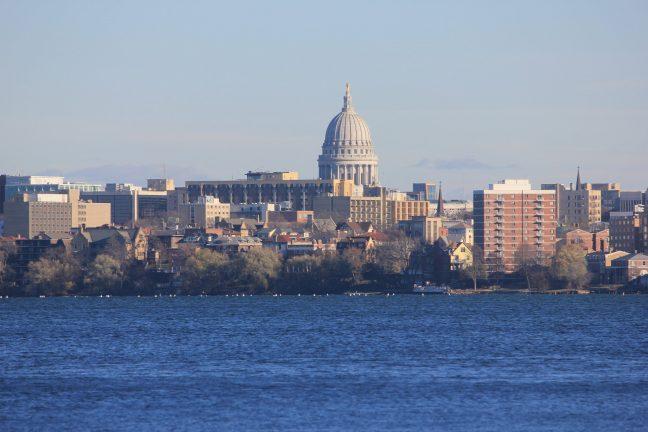There are four challengers filed to run against mayoral incumbent Paul Soglin in the 2019 Madison mayoral primaries.
The challengers include three-term Ald. Mo Cheeks, District 9, former Ald. Satya Rhodes-Conway, chair of the Sustainable Madison Committee Raj Shukla, and comedian Nick Hart.
Soglin has held the office since 2011 after two terms served from 1973-79 and 1989-97. Soglin previously announced last year he would not seek re-election, however, changed his tune as of October.
“I am running for re-election because we have significant opportunities in Madison to make a great city, which we are, even better for all our residents,” Soglin said in an email to The Badger Herald. “I bring the right combination of skills — experience, vision, expertise in managing a complex municipality and a well-established passion for improving the lives of Madisonians and for social justice.”
Soglin asserts his “more than 20 years of experience” as mayor as part of his campaign for Madison voters to keep him in office, while the other candidates push for change. Shukla said he fears there aren’t any current city leaders willing to take advantage of the new leadership in the capitol.
Ald. Mike Verveer, District 4, said to the Isthmus that some have asserted with half the city council seats being new this spring, that a new face of leadership might be due. Cheeks expressed new leadership is needed with Madison’s continuous growth and increasing diversity.
“We need new leadership, with a sense of urgency, along with an ability to collaborate and to bring people together, in order to take on [Madison’s] pressing challenges and I’m ready for that challenge,” Cheeks said.
Shukla has also discussed the importance of issues such as climate change and equity in his campaign. The idea that current city leadership has not and will not accomplish enough, is shared by candidate Rhodes-Conway, who said the city needs leaders prepared to take on the issues and challenges of Madison.
Rhodes-Conway said Soglin hasn’t completed enough of the tasks he set out to as mayor, and her leadership style will increase the implementation of her ideas for Madison.
“We as a city invest a ton of capital — both people and money — in developing new progressive policy solutions to address the challenges we face, but we often fail to implement them,” Rhodes-Conway said in an email to The Herald.
Rhodes-Conway cited her “collaborative leadership style” as one of her strengths she plans to offer the city of Madison. As the director of the Mayor’s Innovation Project at the Wisconsin Center on Strategy, working with mayors around the country to “develop and implement progressive policies for their cities.”
Both the lack of bus rapid transit and expanded affordable housing are challenges Rhodes-Conway said she wants to tackle. She described her vision for Madison as “a community where everyone has the opportunity to thrive.”
“I moved to this community 20 years ago for an internship and was able to find a job and I was able to find an affordable apartment and ultimately buy a home — unfortunately, those things aren’t true for all Madisonians today,” Rhodes-Conway said. “As mayor, I’ll work to make Bus Rapid Transit a reality, increase access to affordable housing, and mitigate the impacts of climate change — and I’ll do all of those things with racial equity in mind.”
Racial equity and diversity have been incorporated in some form into nearly every candidate’s campaign. The 2018 midterms showed a surge of diversity across state and national elections and Madison’s mayoral election has reflected this trend.
Candidates have expressed the importance of diversity as a part of Madison’s politics as well as the Madison community as a whole.
As Madison grows and diversifies, Cheeks said he wants to work to reduce inequality. This election will be important in determining where the city is headed in the future, he said.
“Madison has become a tale of two cities,” Cheeks said. “A city that works well for some people and poorly for others. In order for us to really change the trajectory and ensure this city is becoming a place where more people feel ownership for this city and hope for this city.”
Hart’s campaign did not respond for comment.
The primary elections for mayor will be held Feb. 19, followed by the general election April 2.


